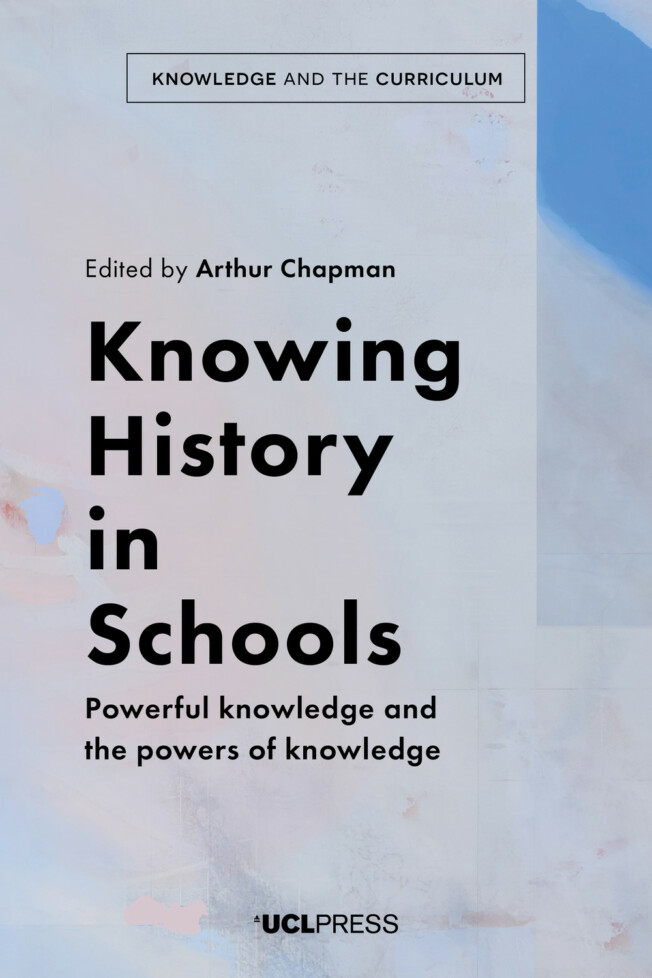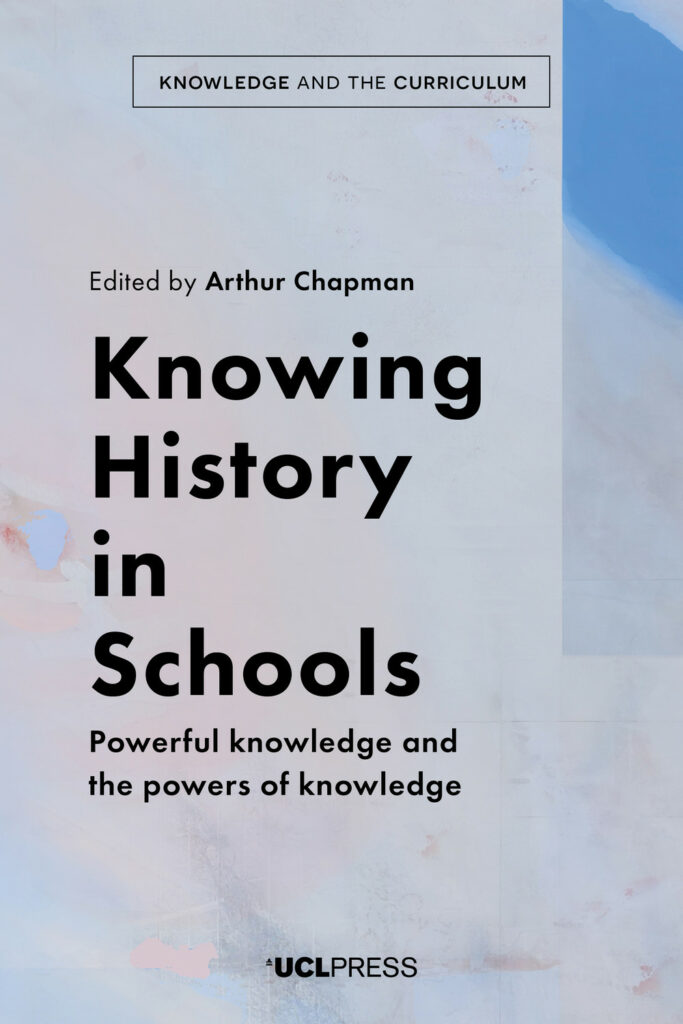
Knowing History in Schools
Powerful knowledge and the powers of knowledge
Arthur Chapman (Editor)
Series: Knowledge and the Curriculum
The ‘knowledge turn’ in curriculum studies has drawn attention to the central role that knowledge of the disciplines plays in education, and to the need for new thinking about how we understand knowledge and knowledge-building.
Knowing History in Schools explores these issues in the context of teaching and learning history through a dialogue between the eminent sociologist of curriculum Michael Young, and leading figures in history education research and practice from a range of traditions and contexts. With a focus on Young’s ‘powerful knowledge’ theorisation of the curriculum, and on his more recent articulations of the ‘powers’ of knowledge, this dialogue explores the many complexities posed for history education by the challenge of building children’s historical knowledge and understanding. The book builds towards a clarification of how we can best conceptualise knowledge-building in history education. Crucially, it aims to help history education students, history teachers, teacher educators and history curriculum designers navigate the challenges that knowledge-building processes pose for learning history in schools.
List of figures
List of tables About the contributors Acknowledgements
1 Introduction: historical knowing and the ‘knowledge turn’
Arthur Chapman
2 How helpful is the theory of Powerful Knowledge for history educators?
Alison Kitson
3 Inferentialism in history education: locating the ‘power’ and the ‘knowledge’ by thinking about what it is for a concept to have meaning in the first place.
Catherine McCrory
4 Powerful knowledge building and conceptual change research: learning from research on ‘historical accounts’ in England and Cyprus
Arthur Chapman and Maria Georgiou
5 Disciplinary knowledge denied?
Richard Harris
6 The power of knowledge: the impact on history teachers of sustained subject-rich professional development
Katharine Burn
7 Two concepts of power: knowledge (re)production in English history education discourse
Joe Smith and Darius Jackson
8 Powerful knowledge for what? History education and 45-degree discourse
Kenneth Nordgren
9 Ka Mura, Ka Muri [Look to the past to inform the future]: disciplinary history, cultural responsiveness and Māori perspectives of the past
Mark Sheehan
10 The stories we tell ourselves: history teaching, powerful knowledge and the importance of context
Nick Dennis
11 Powerful Knowledge or the Powers of Knowledge: a dialogue with history educators Michael Young
References
Index
DOI: 10.14324/111.9781787357303
Number of illustrations: 12
Publication date: 07 January 2021
PDF ISBN: 9781787357303
EPUB ISBN: 9781787357334
Hardback ISBN: 9781787357327
Paperback ISBN: 9781787357310
Arthur Chapman (Editor) 
Arthur Chapman is an Associate Professor in History Education at the UCL Institute of Education who has worked in history education research and history teacher education, and as a history teacher and lecturer in school and university. He has published widely in history education and is Editor-in-Chief of the History Education Research Journal. He is a Fellow of the Royal Historical Society and an Honorary Fellow of the Historical Association.
‘Raises the bar by addressing, with new insights, critical issues through the enlightening lens of powerful knowledge. There is much in this book that will interest scholars from across a wide range of subjects. It is a book that deserves a wide readership.’
The Curriculum Journal, BERA
‘a balanced and polyphonic contribution to the debate’
Passato e Presente
‘The collection… places history in a broader social and political context and, by opening up a debate about the “powerful knowledge” in teaching this subject, represents an unusually significant incentive for all researchers of history teaching, as well as historians, to reflect on the goals of their research and the ways in which they reach the rest of society, especially those that are just beginning to form.’
Istorija
Extra resources for Knowing History in Schools
Listen to the editors of Knowing History in Schools
Listen to Arthur Chapman discuss Knowing History in Schools on Past Times – Talking and Teaching History podcast.
Listen to the editors of the Knowledge and the Curriculum series
Listen to Arthur Chapman and Alex Standish (editors of the Knowledge and the Curriculum series) review the contemporary debate on the school curriculum on the IOE Coffee Breaks podcast
Listen to series editor Jennie Golding (editor of the Knowledge and the Curriculum series) discuss the future of knowledge and the curriculum on the Research for the Real World podcast
Listen to series editor Arthur Chapman talk about Knowledge and the Curriculum on the Research for the Real World podcast.
Related titles
Knowing History in Schools
Powerful knowledge and the powers of knowledge
The ‘knowledge turn’ in curriculum studies has drawn attention to the central role that knowledge of the disciplines plays in education, and to the need for new thinking about how we understand knowledge and knowledge-building.
Knowing History in Schools explores these issues in the context of teaching and learning history through a dialogue between the eminent sociologist of curriculum Michael Young, and leading figures in history education research and practice from a range of traditions and contexts. With a focus on Young’s ‘powerful knowledge’ theorisation of the curriculum, and on his more recent articulations of the ‘powers’ of knowledge, this dialogue explores the many complexities posed for history education by the challenge of building children’s historical knowledge and understanding. The book builds towards a clarification of how we can best conceptualise knowledge-building in history education. Crucially, it aims to help history education students, history teachers, teacher educators and history curriculum designers navigate the challenges that knowledge-building processes pose for learning history in schools.
‘Raises the bar by addressing, with new insights, critical issues through the enlightening lens of powerful knowledge. There is much in this book that will interest scholars from across a wide range of subjects. It is a book that deserves a wide readership.’
The Curriculum Journal, BERA
‘a balanced and polyphonic contribution to the debate’
Passato e Presente
‘The collection… places history in a broader social and political context and, by opening up a debate about the “powerful knowledge” in teaching this subject, represents an unusually significant incentive for all researchers of history teaching, as well as historians, to reflect on the goals of their research and the ways in which they reach the rest of society, especially those that are just beginning to form.’
Istorija

